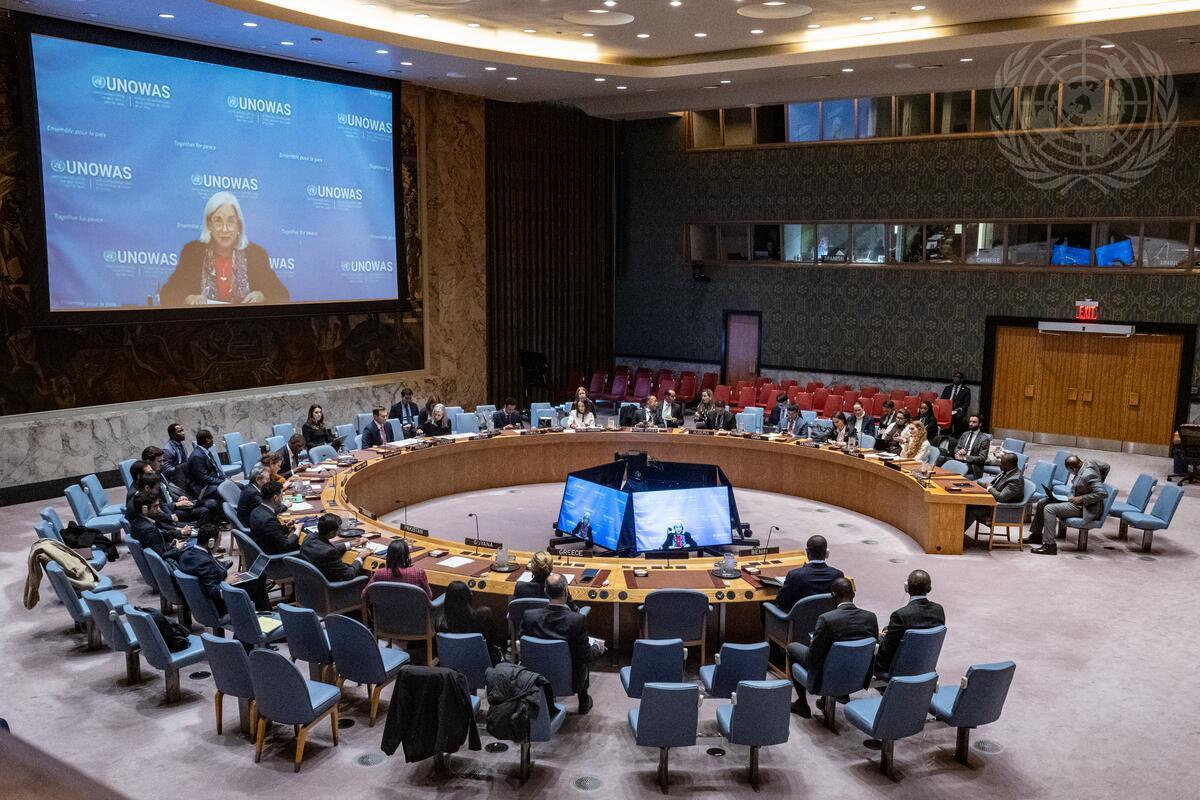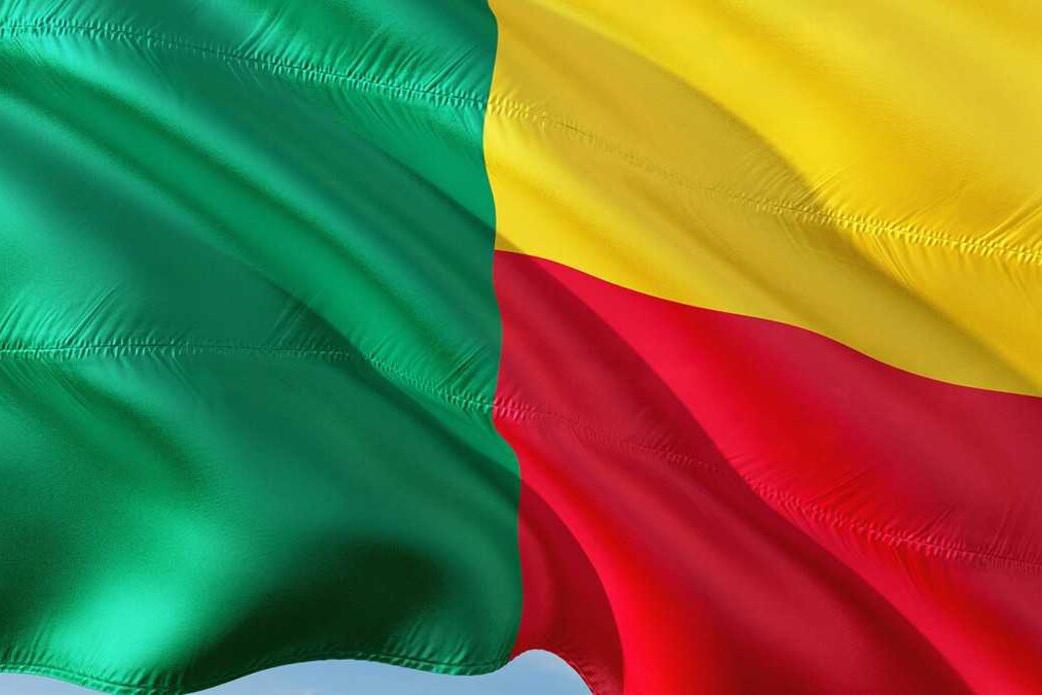On 24 July 2019, the Special Representative and Head of the United Nations Office for West Africa and the Sahel, Mohamed Ibn Chambas, presented to the UN Security Council, the report of the Secretary-General on peace consolidation in West Africa and the Sahel. Overview of the major issues raised.
“Further progress has been made in democratic consolidation in West Africa and the Sahel. Such progress in the democratic space has not been linear nor without complications,” said Mr. Mohamed Ibn Chambas, Special Representative of the Secretary-General and Head of the United Nations Office for West Africa and the Sahel (UNOWAS), to Members of the Security Council, on 24 July 2019, during the presentation of the latest report of the Secretary-General on the activities of UNOWAS which covers the period from January to June 2019.
Successful elections especially in Nigeria, Senegal and Mauritania as well as political dialogues recently initiated mainly in Benin, Burkina Faso and Ghana show further progress made in the consolidation of democracy in the region. But despite these improvements, insecurity is prevalent in several areas of the region where it has even worsened.
“Addressing such potential sources of conflict remains a major priority ahead of the upcoming cycle of high-stake presidential elections in West Africa scheduled for next year in Burkina Faso, Côte d’Ivoire, Ghana, Guinea, Niger and Togo,” warned SRSG Ibn Chambas to the Security Council, while underlining human rights problems several countries in the region are facing, particularly through “the instrumentalization of the judiciary for political objectives in some cases as well as a predominant sentiment of impunity for violent crimes, undermining respect for the rule of law.”
Security challenges and humanitarian crisis in the Sahel
SRSG Chambas also highlighted the volatile security situation in the entire Sahel, where escalating violence and insecurity have sparked an unprecedented humanitarian crisis leaving a total of 5.1 million Burkinabe, Nigeriens and Malians in need. In Burkina Faso, a total of 226 security incidents contributed to an accelerated displacement from 47,000 in December 2018 up to 220,000 internally displaced people and more than 25,000 refugees in June 2019, representing an almost five-fold increase.
“In the Lake Chad Basin, attacks by Boko Haram splinter groups continue to threaten the peace and stability of the region,” Ibn Chambas said. He urged “governments and partners to redouble their efforts in defining a concerted approach to prevent a further expansion of the terrorist threat and foster support to much-needed medium and long-term stabilization measures aligned to the United Nations Integrated Strategy for the Sahel”.
The Special Representative Ibn Chambas also called for an “enhanced support to the implementation of the Regional Stabilization Strategy for the Lake Chad Basin as well as the Priority Investment Program of the Group of Five of the Sahel, along with a concerted effort to support national development plans” to boost development of the region.
Intercommunity conflicts
Echoing the Special Representative's presentation, the Security Council, in its statement of 07 August 2019, expressed its deep concern about the continued deterioration of the security and humanitarian situation in the Sahel region and calls for a continued regional and international engagement to help these countries to address the peace and security challenges they face. The Security Council emphasized that stability and security in Mali are inextricably linked to that of the Sahel and West Africa, as well as to that of Libya and North Africa.
For the challenging security situation in West Africa and the Sahel, notably threats posed by terrorism, maritime piracy, conflicts between pastoralists and farmers, and transnational organized crime, including trafficking in persons, arms and drugs and illegal exploitation of natural resources, can be interlinked. Also, to combat insecurity in the region, the members of the Security Council called on ECOWAS and the G5 Sahel to identify areas of complementarity in preventing conflict and sustaining peace in the region.
The Security Council further expresses its deep concern about the intensification of intercommunal violence in Central Mali and Burkina Faso, and reiterates that stabilization of the situation and protection of civilians in this region requires a fully integrated response, led by the governments of those countries, with the support of UNOWAS and the international community, and encompassing simultaneous pursuit of progress on security, governance, humanitarian assistance and development.
Dialogue to prevent violence
The Security Council recalls the provisions of the African Charter on Democracy, Elections and Governance that State Parties shall ensure that the process of amendment or revision of their constitution reposes on national consensus, obtained, if need be, through referendum and, while expressing concern about the increasingly polarized environment, calls upon UNOWAS to encourage all political stakeholders to use dialogue to resolve their differences in that regard.
It further encourages the consolidation of ongoing political reforms in the region to prevent violence and instability, as well as progress in the area of national reconciliation in Sierra Leone and Liberia. It called national stakeholders in Guinea-Bissau, Côte d’Ivoire, Guinea and Togo to work together to facilitate the timely preparation for, and holding of genuinely free and fair, credible, timely and peaceful elections, and to take all appropriate steps to prevent violence.
In response to the enduring issues of development, humanitarian action, human rights and peace and security, the Security Council called for a more integrated and multisectoral approach. It stressed that this will also help address the root causes of crises, help vulnerable populations, including migrants and refugees, as well as prevent further tension and violence.
Role of women, efforts climate change
Recognizing the adverse effects of climate change, ecological changes and natural disasters, including through drought, desertification, land degradation and food insecurity among other factors on the stability of West Africa and the Sahel region, the Security Council stressed the need for long-term strategies, based on risk assessments, by governments and the United Nations, to support stabilization and build resilience and encourages UNOWAS to continue to integrate this information in its activities.
Regarding the role of women in prevention and resolution of conflicts, in peacebuilding as well as in post-conflict situations, the members of the Security Council highlighted the importance of the full, equal, and meaningful women participation and involvement in all efforts for the maintenance and promotion of peace and security.






